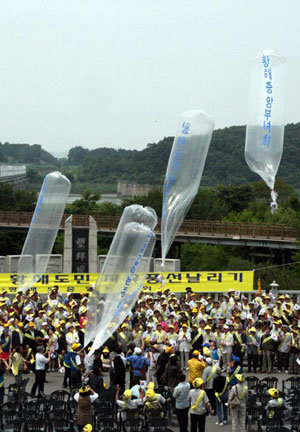Seoul Superintendent to Proceed With Disputed Exam
Seoul Superintendent to Proceed With Disputed Exam
Posted July. 09, 2010 11:36,

Seoul Metropolitan Office of Education Superintendent Kwak No-hyun said Thursday that he could be the first to strictly abide by guidelines set by the education minister.
Kwak told a news conference that he relayed word by word the Education, Science and Technology Ministrys instructions to prevent the state-administered scholastic achievement test from disrupting regular classes. He has clashed with Education Minister Ahn Byong-man.
Kwak sent inspectors to around 400 schools Thursday to find those replacing regular classes with those on problem solving or forcing students to stay later to prepare for the test. He pledged to sternly hold such schools responsible.
He said he did not decide, however, whether to punish teachers who refuse to conduct the test scheduled for Tuesday or give students the choice of taking it.
Many insiders say Seoul schools will not likely allow students to decide whether to take the exam, following the decision of educational authorities in North Jeolla Province and Gangwon Province.
A senior official at the Seoul education office predicted that the achievement test will be given next week as planned, adding the office will make a proposal to the ministry based on the results of the school survey.
Kwak, who took office July 1, pledged to reform committees under his office as the first step toward implementing his campaign pledges.
He said he will break the practice of appointing office insiders as chairmen of the committees unless the formation of a particular committee is regulated by law.
Just six of 53 committees under the Seoul education office are headed by outside experts. If Kwak exercises his authority to revise the rule, outsiders can chair up to 19 committees.
The superintendent will appoint an outsider to chair the professional personnel committee, which is headed by a deputy superintendent, and limit the number of insiders in the committee to one or two.
In addition, Kwak said he will fill the disciplinary committee with outsiders except for the chairman, which must be a deputy superintendent under law.
Under the plans, many members of teachers organizations or civic groups will likely participate in committees that decide on key policies, personnel affairs and discipline.
Kwak said he will listen to a broad spectrum of opinions by allowing teachers or parents groups to participate in policy-related committees. Personnel and disciplinary committees do not require a high level of outsider participation, he said, adding he has many around him with expertise and experience.
On the controversial proposal for an ordinance on students human rights, Kwak did not mention a concrete plan, calling the debate premature. On his comments made Thursday morning on controlling the level of the proposed ordinance, he said he meant he will consult with other concerned parties.
baron@donga.com



![‘건강 지킴이’ 당근, 효능 높이는 섭취법[정세연의 음식처방]](https://dimg.donga.com/c/138/175/90/1/wps/NEWS/IMAGE/2026/01/18/133181291.1.jpg)



